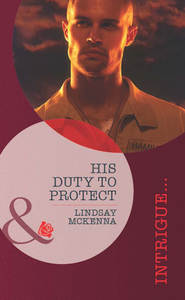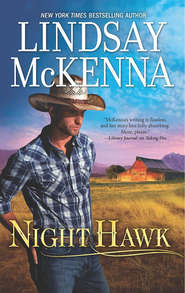По всем вопросам обращайтесь на: info@litportal.ru
(©) 2003-2024.
✖
Sun Woman
Настройки чтения
Размер шрифта
Высота строк
Поля
Relaxing, Gib placed his arms on his knees. “Looks like you’ve had more giveaways than most,” he teased gently. Indians believed in giving away all that they owned, especially food, to those who were poor or incapable of hunting for themselves. He saw the corners of her mouth turn up in the barest hint of a smile. Kuchana had a magical effect on him.
“The Old Ones and the children will not starve,” Kuchana said stubbornly. Her stomach was settling down, and the biscuit tasted good. “How do you know so much about my people?” she asked McCoy.
“I made a point of learning about them when I was assigned to Fort Apache,” Gib answered.
“Many pindahs know nothing of us.”
His mouth twitched. “I don’t have any prejudice against your people, Kuchana.”
Her name rolled off his tongue like a reverent prayer. Kuchana could feel the power of the emotions behind his words. She searched his face. “What is ‘prejudice’?”
“It’s when one person hates another because he might believe or look differently than himself.”
“Pindahs have prejudice against us because we are different?”
“Yes.”
She tilted her head, watching a group of Negro soldiers marching off in the distance. She held up her hand, gesturing toward the soldiers. “The dark ones are also different. Do pindahs have prejudice against them, too?”
Pushing the hat back on his head, Gib mulled over his answer. “There are many pindahs who don’t like any other color except their own.”
“You are not like them.”
Gib shook his head. “Color means nothing to me. How a man or woman treats others is what’s important.”
“You are like an Apache!” she said excitedly. Touching her breast, Kuchana regarded him somberly. “You are a man who talks from his heart. That is good.”
“I try to, Kuchana.” Gib grimaced, his gaze restless. As a sergeant, his duties and responsibilities were many. There was a decided prejudice against the Negro enlisted soldiers. In the month he’d been at the fort, he’d realized that he was the only buffer between them and the white officers. The Civil War might be over, but the Negro was far from free. He felt it wise to keep his eyes and ears open, be alert at all times.
Aware that the sergeant surveyed the post, Kuchana remained silent, continuing to eat the biscuit. The strain of the past few hours was catching up with her. Her eyelids were becoming heavy, and she sighed, placing the rest of the biscuit back on the plate.
McCoy noticed the weariness in her eyes. “Tired?”
“Yes.”
“Feel like standing?”
Kuchana tested her legs carefully, finding new strength in them. Gib remained at a distance, allowing her to stand on her own. “Where do we go now?”
“The scout area,” Gib said. “I’ll show you where you’re going to live.” Silently, he wondered how she was going to fit in with the other Indians who worked for the army. Many tribes didn’t get along with one another. Even among the various Apache segments, some tribes were friendlier than others. The Chiricahua, Kuchana’s tribe, had few friends.
Chapter Three
The scout section sat behind the rows of laundry tents where the women washed the clothes and bedding for the entire post. Kuchana surveyed the bone-colored canvas tents that stood, with flaps open, in neat, orderly lines. Huge tin tubs filled with hot, soapy water sat on wooden tables. The dark-skinned women who toiled laboriously over their duties had sweaty faces and their dresses clung to them from the heat. These women reminded her of the diligent Apache women, who worked nonstop for their families.
Turning her gaze in another direction, Kuchana saw several Indian men crouched in a circle, speaking in low guttural tones. The hackles on the back of her neck raised as Chee, a huge Apache of Tonto ancestry, stood up at her approach.
Chee was dressed in a blue army jacket and dark brown twill pants along with his kabun boots. He was the chief scout, and judging from his deepening scowl, McCoy knew there were going to be fireworks. The other four scouts, wearing cotton shirts, army trousers and black leather boots, stood also. Their faces were wary, inspecting Kuchana behind a wall of formidable silence as she and Gib came to a halt. Chee stared down at the woman for a long moment. “You are Geronimo’s warrior,” he spat.
Girding herself, Kuchana stared at him defiantly. “I am Chiricahua. My name is Kuchana.”
Chee stuck out his chest and thumped it with his fist. “I am in charge. You Chiricahua think you are superior. Well, you are not. I am Tonto.”
Gib grimaced inwardly. There was little that could be done to settle the friction between the Tonto tribe and the Chiricahua. That was one reason the Apache hadn’t been able to push the whites out of Arizona; they’d fought too much among themselves and not presented a united front. Even here Gib was seeing evidence of the same hostility. And if he had any doubts about Kuchana’s bravery, now that she stood in front of the huge, huffing Indian, they disappeared.
Kuchana thumped her breast, thrusting out her chin in Chee’s direction. “You may be chief scout, but I’m Chiricahua, and we are better trackers.”
McCoy watched as Two Toes moved forward. The Yavapai’s face was lean in comparison to the fuller Apache face. He saw Kuchana’s anger turn to hatred as she noticed the scout’s approach.
“Yavapai,” she hissed. Glaring at Chee, she demanded, “How can you work with our enemy? This tribe sneaks onto our reservation and into our wickiups at night, killing our women and children with clubs.”
Chee’s massive features, lined with forty years of life, worked into a sneer. “We all work for the army against Geronimo. Yavapai are now our friends.”
Kuchana was the only Chiricahua present. The other scouts were also of Tonto heritage. With a sinking feeling, Kuchana realized that even as a scout, she was going to be an outcast. Although members of Chiricahua and Tonto were brothers, they did not get along. Often, there were blood feuds between the tribes.
Gib cleared his throat. “Chee, it’s up to you to make sure she is trained properly to take over scouting duties when called upon.”
Chee nodded, assuming an air of importance. “She is a scout, Sergeant. I’ll give her a tent and tell her the rules.”
“Good. Tomorrow morning, I’ll be back over here and issue her a kit and weapons.”
Kuchana moved uneasily. She had no choice but to trust Chee. All her weapons had been taken earlier, but no warrior, even without weapons, was defenseless. She had courage and strength born of the knowledge that she would survive where others had died.
Gib glanced at her. “If Chee can’t help you, or answer a question, you come and see me over at the barracks. Understand?”
She nodded, moistening her lips, looking in the direction he pointed. The two-story barracks stood in rows several hundred feet from the scout area.
Pointing to the building closest to the scout area, Gib added, “I have a small office in there. The scouts are free to come and go to the laundry, chow tent, or to the enlisted barracks, but that’s all. Don’t be caught unescorted up by headquarters or on the parade ground.”
“I will stay here,” Kuchana said, pointing to the ground.
“Get some rest. I’ll come for you tomorrow morning and we’ll fill out the rest of your billet.”
Kuchana gave him a small smile of appreciation and whispered, “A-co-’d.” The word meant ‘thank you.’ And it wasn’t often that an Apache spoke it. Gib’s face changed and softened for a moment.
“You’re welcome,” he acknowledged.
Without any further word, he turned and left. Kuchana’s pleasant features wavered in his mind’s eye as he crossed the parade ground, dodging a troop of cavalry coming back in from an assignment. She stirred his senses and feelings as no other woman ever had. He wondered if Polk would allow her to continue as a scout, or send her back to the reservation. If she was going to stay, Kuchana was going to have to prove herself to everyone, and quickly.
Lieutenant Carter hated anyone who wasn’t white or an officer. He didn’t care one whit if a scout was killed in the line of duty. Too often, while on assignment, the scouts were fired upon by civilians who thought they were Geronimo’s people. Carter wasn’t cautious enough about protecting the scouts in that kind of situation. Gib was damned if Kuchana was going to be gunned down by a jumpy silver miner just because Carter chose to ignore certain directives that would keep her safe. He’d have to remain vigilant.
Wiping the sweat off his upper lip with the back of his hand, Gib climbed the wooden stairs. All his life, he’d protected the underdog. That’s what had gotten him in trouble in Fort Apache. With a sigh, he took off his hat and entered headquarters.
Kuchana presented some potentially damaging problems to his own floundering career. The last time he’d placed himself in jeopardy for a woman he’d lost his officer’s commission. Many felt he should have left with his tail between his legs, but he hadn’t. In his heart, he knew what he had done had been right. Instead of retiring, he’d forced the army to give him sergeant’s stripes and retain his services for the duration of his twenty-year enlistment.
Stopping at Corporal McClusky’s desk, Gib picked up several sets of orders that would involve his scouts on future expeditions. Once a month, Polk set out riding assignments for the Fourth, and McCoy was responsible for assigning scouts to the Negro columns.
As he perused the orders, his mind dwelled on Kuchana. He wondered if she was going to get along with the other scouts. With a mental shrug, Gib swung his focus back to his duties. He couldn’t afford to keep thinking about Kuchana. But whether he wanted to admit it or not, his heart was still lingering on her sweet, soft smile.











